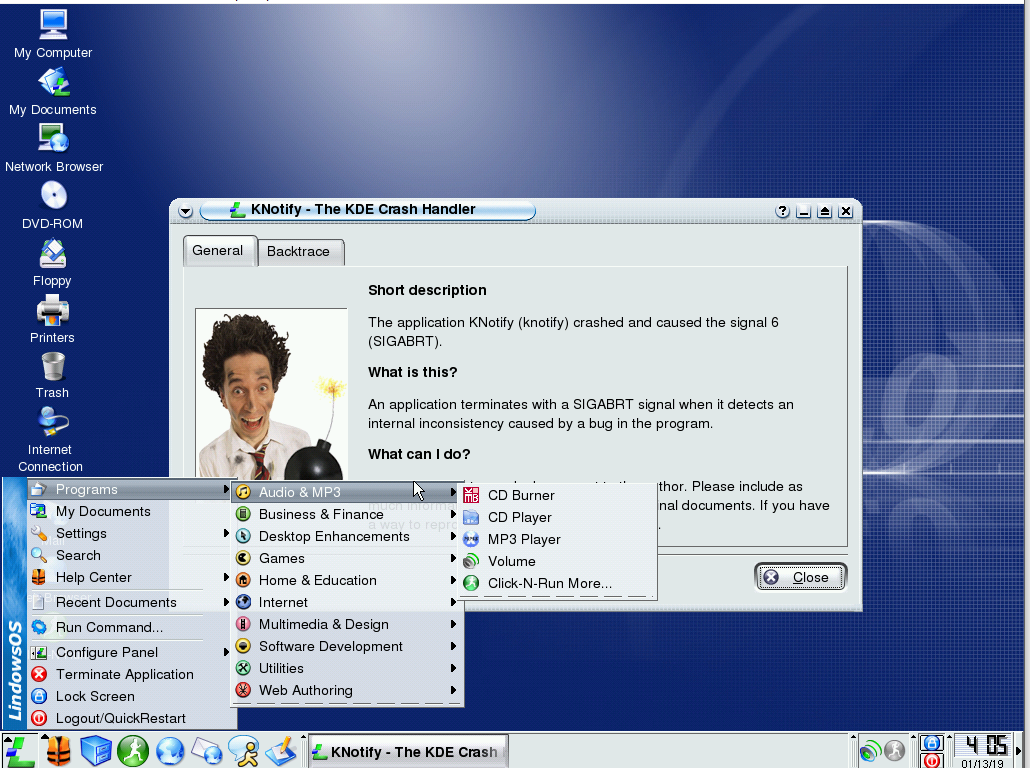Introduction
La distribution Linux «Lindows» est une distribution Linux commerciale payante, créé par Michael Robertson en 2001, basé sur la distribution Debian construire de façon à pouvoir fonctionner avec les applications Windows à l'aide du projet Wine. L'objectif était clairement d'avoir un comportement identique au système d'exploitation Windows en utilisant la plomberie «Linux». L'entreprise Microsoft ne voyant pas d'un bonne oeil un clone de son système d'exploitation Windows avec seulement une lettre de différence, décida de poursuivit l'entreprise à cause d'un terme trop proche de «Windows». La distribution fut renommé Linspire et fut finalement racheté par Xandros en 2008. Aucune version ne fut proposé depuis 2008 et la distribution Lindows est considéré comme abandonné depuis.

Liste des versions
| Version | Date |
|---|---|
| LindowsOS 0.91 | 5 avril 2002 |
| LindowsOS 1.1.1 | 21 juin 2002 |
| LindowsOS 2.1.40 | 24 octobre 2002 |
| LindowsOS 3.0.0 | 15 novembre 2002 |
| Lindows 4.0.302 | 22 juin 2003 |
| Linspire Live 4.5.453 | 19 juillet 2004 |
| Linspire OEM 4.5.453 | 19 juillet 2004 |
| Linspire 5.0.118 | 39 avril 2005 |